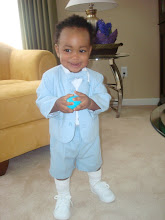I am an educator. I graduated summa cum laude from Temple University with a B.S. in Early Childhood Education and Elementary Education. I graduated from Peabody College of Education at Vanderbilt University with a M.Ed. in Reading Education. Many of my colleagues have similar educational backgrounds. So, why is it that some parents think that they can tell us how to do our job?!
There has been a change in the culture of school from the teacher knows best to I (the parent) know better. Why? What other profession gets this kind of blatant disregard? How would those parents feel if we, the educators, came to their places of employment and told them how to do their job or how to do their job better? How would they feel if we wanted them to solely focus on meeting our specific needs? Do these parents have the educational foundation and background to tell us what to do? NO!
Parents have confused parental involvement and parental advocating with parental interference thinly veiled as a desire for their child to be properly challenged. Educators welcome parental insight, support, concern, and cooperation. Parents should be sure that their children are getting the best education possible. However, the best way to achieve that goal is not by insulting the education, intelligence, and professionalism of the teacher by instructing them how to teach your child. Some parents, not all, think that since they have completed elementary school, middle school, and high school that they know how to teach it. Although educators are very talented and make teaching look easy, it is not.
I wish some parents would stop thinking that their financial status, age, race, position, job, or family name gives them the right to treat educators in this manner. We, as educators, have a responsibility to provide an optimal learning experience for all children in the least restrictive environment. We should prepare our students to be successful, lifelong learners. We do this well when we work TOGETHER with parents who are concerned about their child's success, who ask questions, who don't make assumptions, who follow through and follow up, who support the learning that is taking place in the classroom and who cooperate. We do this well when parents understand that many educational experiences today are very different from the educational experiences of their youth. We do this well when the lines of communication are OPEN in both directions. We do this well when you may not understand how your children are learning when they seem to be playing, creating, acting, singing, and dancing a lot, but you recognize that all essential information is being taught, understood, mastered, and retained.
I am asking that parents give the teachers of your children RESPECT. Respect that they have college educations that prepared them to teach your child. Respect that your child's teacher is abreast of the latest successful methods of teaching because s/he continues her/his education by taking course work and seminars. Respect that your child's teacher was chosen to be a part of your school and not placed there by default. Respect that your child's teacher is doing the best that they can. Respect that teaching is not a career, but a vocation for many. Respect that your child's teacher is a professional. Respect the time that your child's teacher invests in preparing for your child's education outside of the classroom. Respect the judgement of the teacher. Respect the teacher enough to communicate with them, and not demand or tell them what to do. Respect....Respect goes a long way to create an optimal situation for all. R-E-S-P-E-C-T....I know what it means to me...and my colleagues.
Subscribe to:
Post Comments (Atom)
















































No comments:
Post a Comment